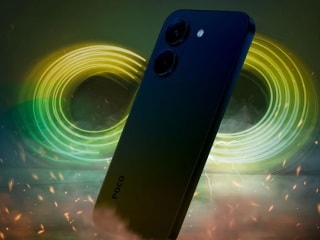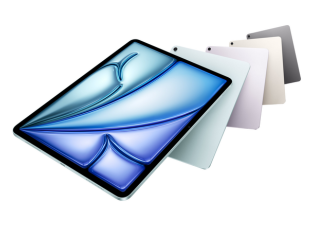- Home
- Internet
- Internet News
- Semicon India 2025: India’s First Indigenous ‘Vikram’ 32 bit Microprocessor Showcased
Semicon India 2025: India’s First Indigenous ‘Vikram’ 32-bit Microprocessor Showcased
Vikram is designed for launch vehicle applications under harsh environmental conditions, as per ISRO.

Photo Credit: ISRO
Vikram is jointly developed by ISRO and SCL
Union Minister for Electronics and Information Technology Ashwini Vaishnaw showcased the 32-bit microprocessor ‘Vikram' at Semicon India 2025 on Tuesday. It is India's first fully indigenous 32-bit microprocessor, developed by the Indian Space Research Organisation (ISRO), for use in launch vehicle applications under harsh environmental conditions. At Semicon India 2025, Union IT Minister presented the Vikram microprocessor, along with test chips of the four government-approved projects under the ‘Make in India' initiative, to Prime Minister Narendra Modi.
Vikram Microprocessor Showcased at Semicon India 2025
The Vikram 32-bit microprocessor (VIKRAM3201) is jointly developed by the ISRO's Vikram Sarabhai Space Centre and Semiconductor Laboratory (SCL) under the India Semiconductor Mission (ISM). It is designed for use in the harsh environmental conditions of launch vehicles, ensuring continued control functions and navigational capabilities during space missions.
First ‘Made in Bharat' Chips! 🇮🇳 pic.twitter.com/QYFGA4HFLG
— Ashwini Vaishnaw (@AshwiniVaishnaw) September 2, 2025
“Here we are today, in a short span of 3.5 years, we have the world looking at India with confidence. Today, the construction of 5 semiconductor units is going on at a rapid pace. Pilot line of 1 unit is complete and we just presented the first Made in India chip to Hon'ble PM here,” the Union IT Minister said at Semicon India 2025.
As per ISRO, the chip is capable of withstanding extreme temperatures, from as low as -55 degrees Celsius to up to 125 degrees Celsius. It is said to be backwards compatible with the VIKRAM1601 microprocessor, which has been used in the avionics systems of ISRO launch vehicles since 2009.
The Vikram 32-bit microprocessor has a custom instruction set architecture. It has high-level language support for the Ada language, which is known for its reliability and has applications in satellites, air traffic control systems, and launch vehicles. There is also a floating-point computation capability for decimal-based complex and precise mathematical calculations. This potentially aids in calculating a space vehicle's trajectory, analysing sensor data, and rendering 3D graphics.
ISRO said that its indigenous microprocessor is compatible with open-source software toolsets, along with a proprietary simulator and an Integrated Development Environment (IDE). It has also been tested with flight software, as per the space agency.
Apart from the Vikram 32-bit microprocessor, two other fabrication plants are also expected to release their chips in the coming months, according to the Union IT Minister.
Get your daily dose of tech news, reviews, and insights, in under 80 characters on Gadgets 360 Turbo. Connect with fellow tech lovers on our Forum. Follow us on X, Facebook, WhatsApp, Threads and Google News for instant updates. Catch all the action on our YouTube channel.
- Samsung Galaxy Unpacked 2026
- iPhone 17 Pro Max
- ChatGPT
- iOS 26
- Laptop Under 50000
- Smartwatch Under 10000
- Apple Vision Pro
- Oneplus 12
- OnePlus Nord CE 3 Lite 5G
- iPhone 13
- Xiaomi 14 Pro
- Oppo Find N3
- Tecno Spark Go (2023)
- Realme V30
- Best Phones Under 25000
- Samsung Galaxy S24 Series
- Cryptocurrency
- iQoo 12
- Samsung Galaxy S24 Ultra
- Giottus
- Samsung Galaxy Z Flip 5
- Apple 'Scary Fast'
- Housefull 5
- GoPro Hero 12 Black Review
- Invincible Season 2
- JioGlass
- HD Ready TV
- Latest Mobile Phones
- Compare Phones
- Apple iPhone 17e
- AI+ Pulse 2
- Motorola Razr Fold
- Leica Leitzphone
- Samsung Galaxy S26+
- Samsung Galaxy S26 Ultra
- Samsung Galaxy S26
- iQOO 15R
- Asus TUF Gaming A14 (2026)
- Asus ProArt GoPro Edition
- Lenovo Idea Tab Pro Gen 2
- Lenovo Legion Tab (2026)
- Huawei Watch GT Runner 2
- Amazfit Active 3 Premium
- Xiaomi QLED TV X Pro 75
- Haier H5E Series
- Asus ROG Ally
- Nintendo Switch Lite
- Haier 1.6 Ton 5 Star Inverter Split AC (HSU19G-MZAID5BN-INV)
- Haier 1.6 Ton 5 Star Inverter Split AC (HSU19G-MZAIM5BN-INV)












